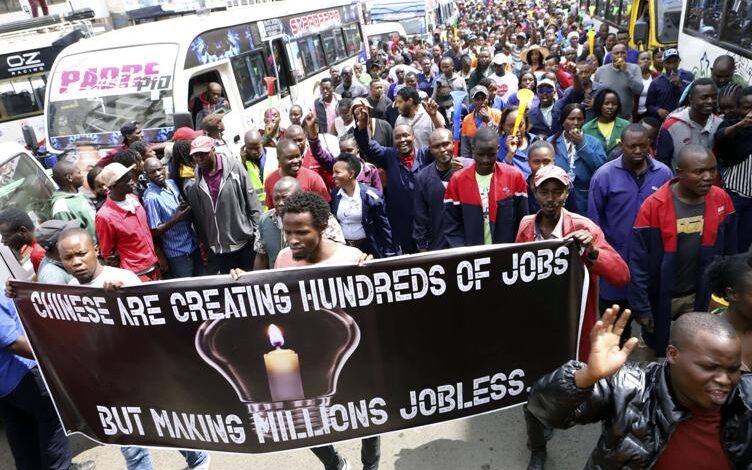The cheap Chinese Ahop at the Centre of Kenya R ow

A Chinese-owned shop selling cheap household goods at the centre of a dispute in Kenya has reopened after a counterfeit complaint against it was dismissed. The row got to the heart of a debate about whether this kind of outlet hurts or helps Kenyans.
Blowing whistles and vuvuzelas, Kenyan petty traders marched in their hundreds to the deputy president’s office in Nairobi to demand an end to what they called a “China invasion”.
The China Square shop that had become a hit with consumers because of its cheap goods was the focus of their anger. Its rapid success had rekindled long-held fears about competition from abroad.
The shop, which is in a mall on the outskirts of Nairobi, had already shut its doors, albeit temporarily, by the time of last week’s protest as controversy swirled around it.Barely five weeks into trading, it had become a social media phenomenon. Its low prices compared to what the petty traders were charging and convenient location made it very attractive.
But some small-scale traders, who form a vital part of Kenya’s economy, began to notice business dropping off.
“We want the Chinese out of Kenya. If the Chinese become the manufacturers, distributors, retailers and even hawkers, where will Kenyans go?” an unnamed trader told journalists at the protest.
Peter Sitati, who imports and sells beauty equipment in Nairobi, was one of those at the demonstration.
He says a plastic pedicure stool that costs around $43 (£35) in his shop, retailed at China Square for about $21, effectively undercutting him by more than 50%.
“Many Kenyan businesses are going to close their shops and our economy will collapse,” Mr Sitati argued.
Pressed to explain why he was charging so much more, he said he was covering the taxes and duty he was charged and thought that he might be buying the goods from China at a higher price than China Square.
Despite being asked by the BBC, China Square did not explain how it set its prices, but it might be benefiting from being able to buy in bigger quantities.
It may also have a more direct relationship with the manufacturers. A lot of the smaller Kenyan traders have to go through middle men and may be charged more as a result.
China Square founder Lei Cheng insisted he had done nothing wrong.
“My business is legal and is centred on healthy competition. We have cooperated with all government directives of opening a business in Kenya and we are here to break the monopoly,” Mr Lei said.
He added that his business took more than $157,000 in its first two weeks.
“The people who are fighting us feel threatened because Kenyans now know we exist and we are not exploiting them in pricing.”
BBC





